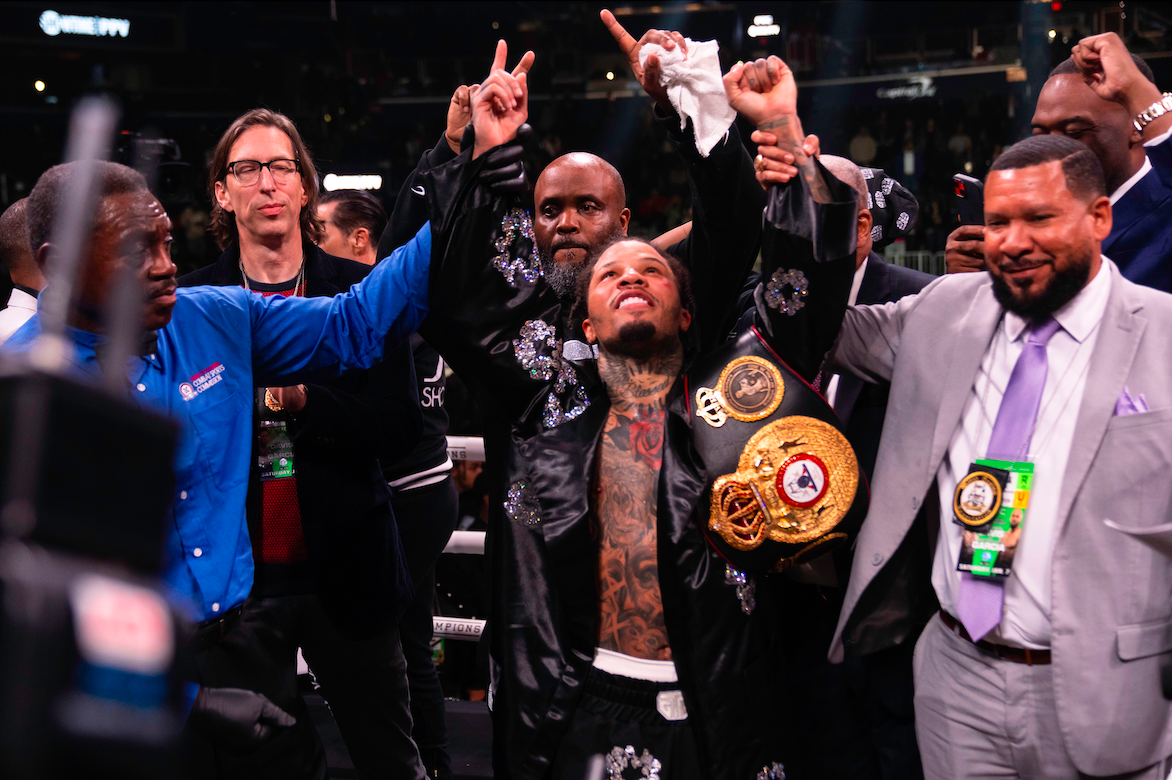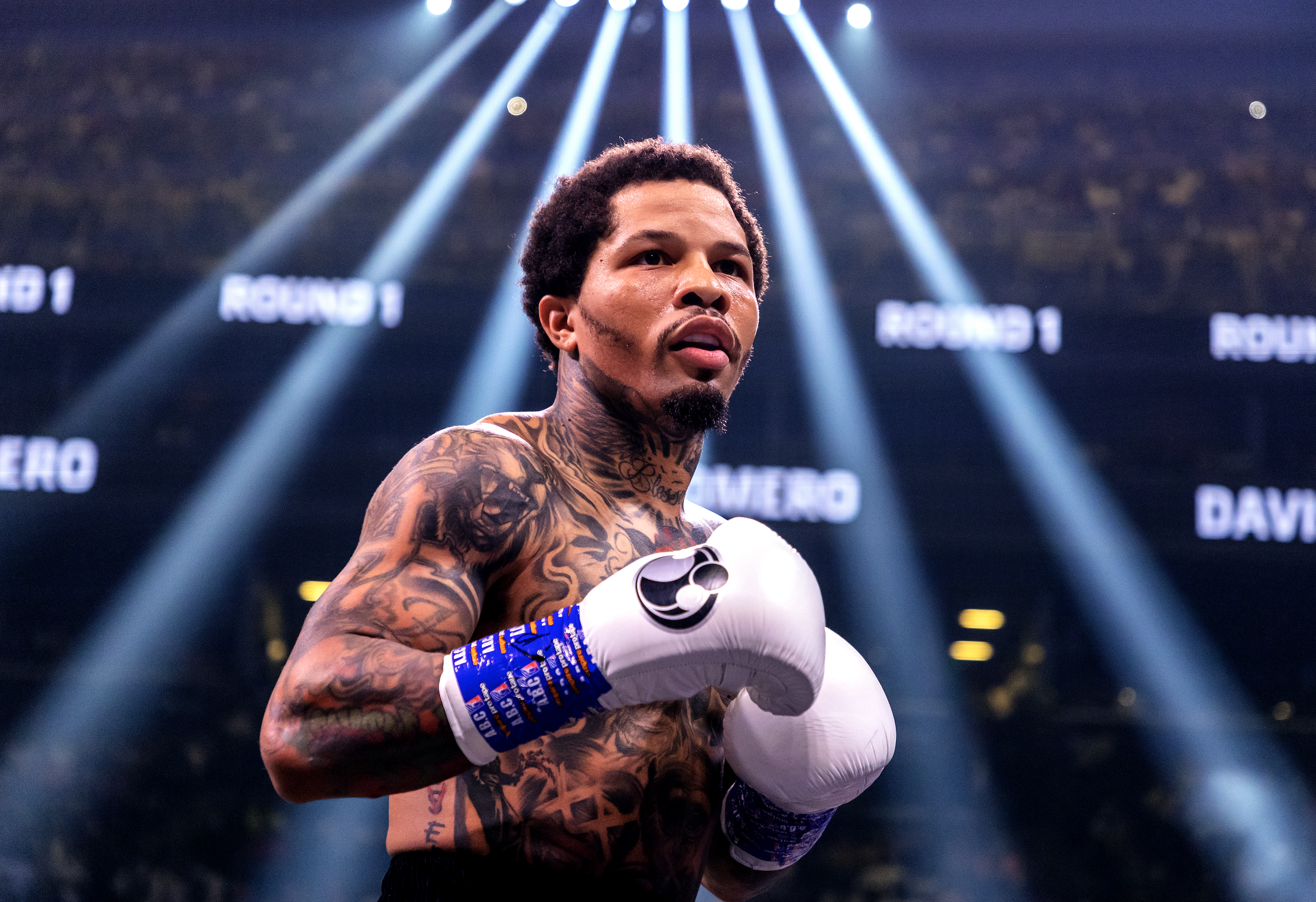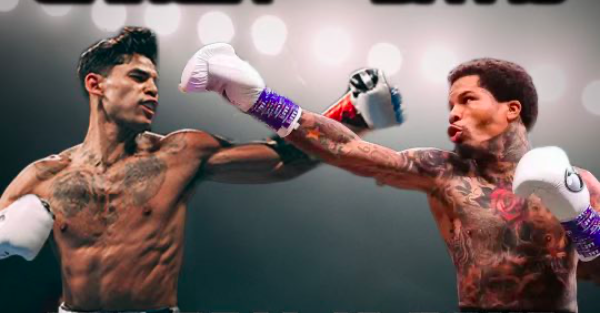Following a sparkling amateur career in which he was the 2011 and 2012 Armed Forces Champion, U.S. Amateur National Champion and eventually the 2012 U.S. Olympic Team Captain, 30-year-old lightweight boxer Jamel Herring turned pro in December 2012 with a victory over Jose Valderrama.

The slick boxer from Coram, L.I. and former marine is 14-0 with 8 KOs and stopped four of his first six opponents inside the distance. He scored an eye-opening TKO victory over veteran Luis Alberto Pelayo in September 2014. In June 2015, he defeated Hector Vasquez, a veteran of over 80 pro fights and in October 2015 he defeated former African champion Yakubu Amidu.
Herring, who started boxing when a friends father who was a trainer invited him down to the gym, picked up the trade quickly.
As he continues to make waves in the boxing world, Herring will battle Colombias Luis Eduardo Flores (21-2, 17 KOs) in a 10-round lightweight bout on Premier Boxing Champions TOE-TO-TOE TUESDAYS on FS1 and BOXEO DE CAMPEONES on FOX Deportes tonight. Televised coverage begins at 11 p.m. ET/8p.m. PT from Sands Bethlehem Events Center in Bethlehem, Pennsylvania.
Word on the boxing streets is that this will be Herrings toughest opponent to date. Herring sees it as just another stepping stone to getting him into title contention for 2016.
Jamel Herring: “I’m not a guy that talks much, but lately Flores has been really talking a lot in terms of coming to knock me out which I understand. But just the talk alone motivated me to go even harder in the gym. They say this is one of my biggest fights as a pro but the same can be said for Flores resume.
Im a better technician and confident with the team that I have. I really just have to take the fight to him. He doesn’t do well on the back foot and his conditioning hasn’t been the greatest. He usually gasses out around the fourth round in the film Ive watched on his fights. My conditioning is at its best. At the same time I won’t underestimate him because he has a good knockout ratio, but I’m gonna get mines off before he gets his off.”

Boxing is a sport for the toughest of athletes, who often captivate fans through enduring pain and continuing to journey through life while beating down adversity. Herring fits the bill in and out of the ring and his initial contact with the boxing world was kind of intimidating.
Herring: “At first I was hesitant because I grew up on Rocky films, so I thought boxing was like no defense and crazy blows to the head, but eventually one thing led to another and I just gave in and gave it a try.”
Two tours of duty in Iraq have built him into a strong, loyal and resilient boxer. Herring was based in Camp Lejeune, North Carolina, where he earned the rank of Sergeant.
He was deployed to Fallujah, Iraq in 2005. After he returned he immediately tried out for the All Marine Corps boxing team in January 2006. While on the team, Herring competed all over the national scene and by 2008 he was a rising hitter in the amateur ranks.
Herring: “Me being a New Yorker…I was affected by the 9/11 incident and it inspired me to join, so right after high school I joined the military and had to spend my 18th birthday doing basic training.”
That kind of life-threatening service and sacrifice convinced Herring that he could also handle the dangerous demands of boxing.
Herring: “Just being in the military is more mental than physical. So that played a big part when it came to using what I learned in the military in my boxing career. My tours in Iraq was a life changer by itself. I take a lot of things that I’ve seen and been through in my military career and implement it in my training in the ring.”
The quality of competition in the U.S. Armed Forces has also helped Herrings seamless transition to the pro level.
Herring: “Being the U.S. Armed Forces Champ in 2011 and 2012 kind of gave me the stamp of approval that I was ready to become a prizefighter. I’m actually really close with all of those guys that box in the military like Iraq veteran Sammy Vasquez. Hes an Al Haymon fighter as well. In that US Armed Forces unit theres always great competition because every branch wants to be the best branch, so that competitive experience helped me develop a lot as an amateur fighter.”
Jamel is a proud father of Stephen, Jamel and Jazmyne, his three living children. His daughter Ariyanah passed away in 2009 from SIDS and her death has served as a turbo booster for his rising boxing career.
Herring: “That was probably the hardest thing I’ve had to endure. For any parent to lose a child is devastating. Luckily I had supportive marines around me at the time that motivated me to get back in the gym and of course I had a strong foundation inside of my family so I basically took her memory and turned it into something positive. I look at her as my guardian angel now. Whenever I feel like things are too tough for me, I always think about her and it helps me push forward. I use her as my motivation for everything I do.”
In addition to serving his country, Herring represented in the 2012 Olympic Games in London. In fact, he was the only U.S. marine to participate in the entire Olympics.
Adding further drama and emotion to the event was the fact that the opening ceremonies of the Olympics fell on the third-year anniversary of daughter’s death. The US team failed to medal, but Herring was a key figure in keeping spirits high and bringing perspective to the once-in-a-lifetime opportunity.
Herring: “From the boxing side it was bad because the team performed poorly, but we all molded together as family and we just took everything in and turned the mood around and had a great time. No matter what may have happened, we looked at it as we are going to be Olympians forever. On top of that as one of the teams captains I had to put aside my personal failures at the Olympic Games and build the other guys up and keep pushing and motivating the men and women of our team. So we had a great time at the end.”
Four years later, as the US Olympic team prepares to reverse its 2012 medal shutout in Rio de Janeiro this summer, Herring prepares for the next major obstacle in his life.

Herring: “So far things are going well but the next step for me as a person and fighter is…I want to keep pushing myself and keep building so from here on out I will keep getting bigger and better fights that will mold me as a better fighter. I’m looking forward to great things.
My relationship with boxing promoter Al Haymon is developing good over the past year or so. Im speaking with Al closely now. He hears my opinions and here’s where Im coming from. I stressed to him that I don’t want to take the easy route. I want to get better because I don’t want to get to a certain point where I’m going for a title and I’m not fully prepared for it because I didn’t fight the highest quality of competition.”
There was a time when Herring thought he was the highest quality of competition at the amateur level, but a 2002 encounter with current WBA middleweight champ Daniel Jacobs, opened his eyes to how far he still had to go as a boxer.
Herring: “That was actually a reality check and when I was younger I was real , up until that pint I hadn’t been beaten int he amateur so I was really cocky, but facing Danny taught me that there’s other levels to this. That loss not only humbled me and made me want to get back in there and get better. Every amateur loss I suffered, I used as a learning experience and got better after.”
Tiptoeing to success is not Herrings goal. He wants the best competition as soon as he can get it. He wants to be remembered for giving fans the classic brawls that have popularized boxing over the years.
Herring: “I want to follow the blueprint of a guy like Oscar De La Hoya. Win, lose or draw Oscar fought the best that was out there. In the end, I just want to be known as a fighter that fought in some good fights. People remember the great fights that go down like Corrales and Castillo, the first Oscar and Mosley fight and the Bernard Hopkins -Trinidad fight. As fans, we still watch those fights and remember them. I want people to look back on my fights and say, ‘That was a great fight.’



